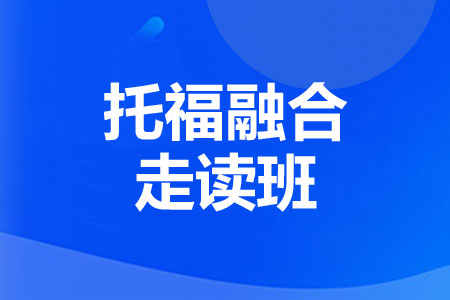托福阅读场景词汇:经济贸易类同义替换词考点

托福阅读场景词汇:经济贸易类同义替换词考点
1. demand: need
TPO 19-1-Paragraph 3: Some of the demand for the services and goods was no doubt fulfilled by people drawn from far afield, but some local people certainly became entwined in this new economy.
TPO 19-1-Q8: According to paragraph 3, how did the soldiers meet their needs for goods and services?
A. Their needs were met by the army, and all of their economic transactions took place within the fort.
B. Most of their needs were met by traveling trades people who visit the forts.
C. During their days of, soldiers traveled to distant towns to make purchases.
D.They bought what they needed from the artisans and traders in nearby towns.
2. mill: factory
TPO 6-1-Paragraph 1: Only the last of these was suited at all to the continuous operating of machines, and although waterpower abounded in Lancashire and Scotland and ran grain mills as well as textile mills, it had one great disadvantage: streams flowed where nature intended them to, and water-driven factories had to be located on their banks whether or not the location was desirable for other reasons.
3. artisan: craftspeople/craft workers
TPO 27-1-Paragraph 2: Within the productive sector, there was a growth of a variety of specialist craftspeople.
TPO 27-1-Paragraph 3: A variety of documentation indicates that certain goods, once made by a family member as one of many duties, were later made by skilled artisans.
TPO 27-1-Q14-A: A variety of evidence indicates that Uruk , while it supported itself primarily by agriculture, also had specialized craft workers.
4. consumption: utilization
TPO 23-2-Q5: The word “consumption" in the passage (paragraph 3) is closest in meaning to
A. sale
B. storage
C. exportation
D. utilization
5. crisis: critical situation
TPO 42-2-Q9: The word “crisis" in the passage is closest in meaning to
A. collapse
B. disturbance
C. critical situation
D. loss
6. raw iron: pig iron
TPO 34-2-Paragraph 1: Processed wood (charcoal) was the fuel that was mixed with iron ore in the blast furnace to produce Pig iron (raw iron).
7. commerce: trade
TPO 48-1-Paragraph 1: In the Western experience, commerce provided the conditions that allowed industrialization to get starter which in turn led to growth in science, technology, industry, transport, communications, social change, and the like that we group under the broad term of “development."
TPO 48-1-Q1: Which of the sentences below best expresses the essential information in the highlighted sentence in the passage? Incorrect choices change the meaning in important ways or leave out essential information.
A. Commerce, industrialization , and development are common features of the Western experience.
B. Trade, industrialization , and development accelerated social change in Western societies.
C. Trade and industrialization brought about development in Western societies.
D. in Western societies, social change provided the conditions for development in a number of areas.
8. manufacture: make
TPO 17-1-Paragraph 2: Spices not only dramatically improved the taste of the European diet but also were used to manufacture perfumes and certain medicines.
TPO 17-1-Q14-D: Europeans wanted to import spices from Asia in order to improve the taste of food and to make perfumes and medicines.
9. commodity: goods
TPO 1-1Paragraph 2: But even high-priced commodities like spices had to be transported in large bulk in order to justify the expense and trouble of sailing around the African continent all the
way to India and China.
TPO 17-1-Q14-B: For trade in Asian goods such as spices to be profitable, these items needed to be transported in large quantities by sea.
10. purchaser: buyer
TPO 50-1-Paragraph 5: The investment firms evaluated the stock of railroads in the smaller American cities and then found purchasers for these stocks in New York City, Philadelphia, Paris,
London, Amsterdam, and Hamburg.
TPO 50-1-Q11: According to paragraph 5, investment bankers were involved in all of the following EXCEPT
A. controlling the distribution of funds to railroads.
B. finding national and international buyers of railroad stock.
C. overseeing administrative changes of railroads when needed.
D. persuading the federal government to reinvest in railroads.
11. yield: produce
TPO 28-2-Paragraph 3: The newly domesticated animals behaved better, were easier to control, and may have enjoyed a higher birth rate, which in turn yielded greater milk supplies.
TPO 28-2-Q7: According to paragraph 3, all of the following statements were true of newly domesticated animals EXCEPT
A. They were controlled more easily by the farmers.
B. They produced a larger number of offspring.
C. They produce more milk.
D. They were larger in size.
12. bronze: mixture of copper and tin
TPO 26-3-Paragraph 4: A major development was the discovery, again about 3000 B.C.E.. that if copper, which had been known in Mesopotamia since about 3500 B.C.E was mixed with tin, a much harder metal, bronze, would result.
13.scheme: plan
TPO 3-2-Paragraph 6: in the face of the upcoming water: supply crisis a number of grandiose schemes have been developed transport vast quantities of water by canal or pipeline from the Mississippi, the Missouri, or the Arkansas rivers.
TPO 3-2-Q12: According to paragraph 6, what is the main disadvantage of the proposed plans to transport river water to the High Plains?
14. apprentice: workers went through an extensive period of training
OG-R5-Paragraph 2: Apprentices were considered part of the family, and masters were responsible not only for teaching their apprentices a trade but also for providing them some education and for supervising their moral behavior.
0G-R5-Q12: Workers went through an extensive period of training.
15. monopoly: major producer
TPO 6-1-Paragraph 4: By 1800 more than a thousand steam engines were in use in the British Isles, and Britain retained a virtual monopoly on steam engine production until the 1830s.
TPO 6-1-Q13: Until the 1830s,Britain was the world's major producer of steam engines.
16. guild: business association
TPO 25-2-Paragraph 2: Guilds (business associations) were required to provide rowers, and through a draft system free citizens served compulsorily when called for.
17. barter: the mutual exchange of commodities or objects between individuals or groups
TPO 41-3-Paragraph 1: Bartering was a basic trade mechanism for many thousands of years; often sporadic and usually based on notions of reciprocity, it involved the mutual exchange of commodities or objects between individuals or groups.









